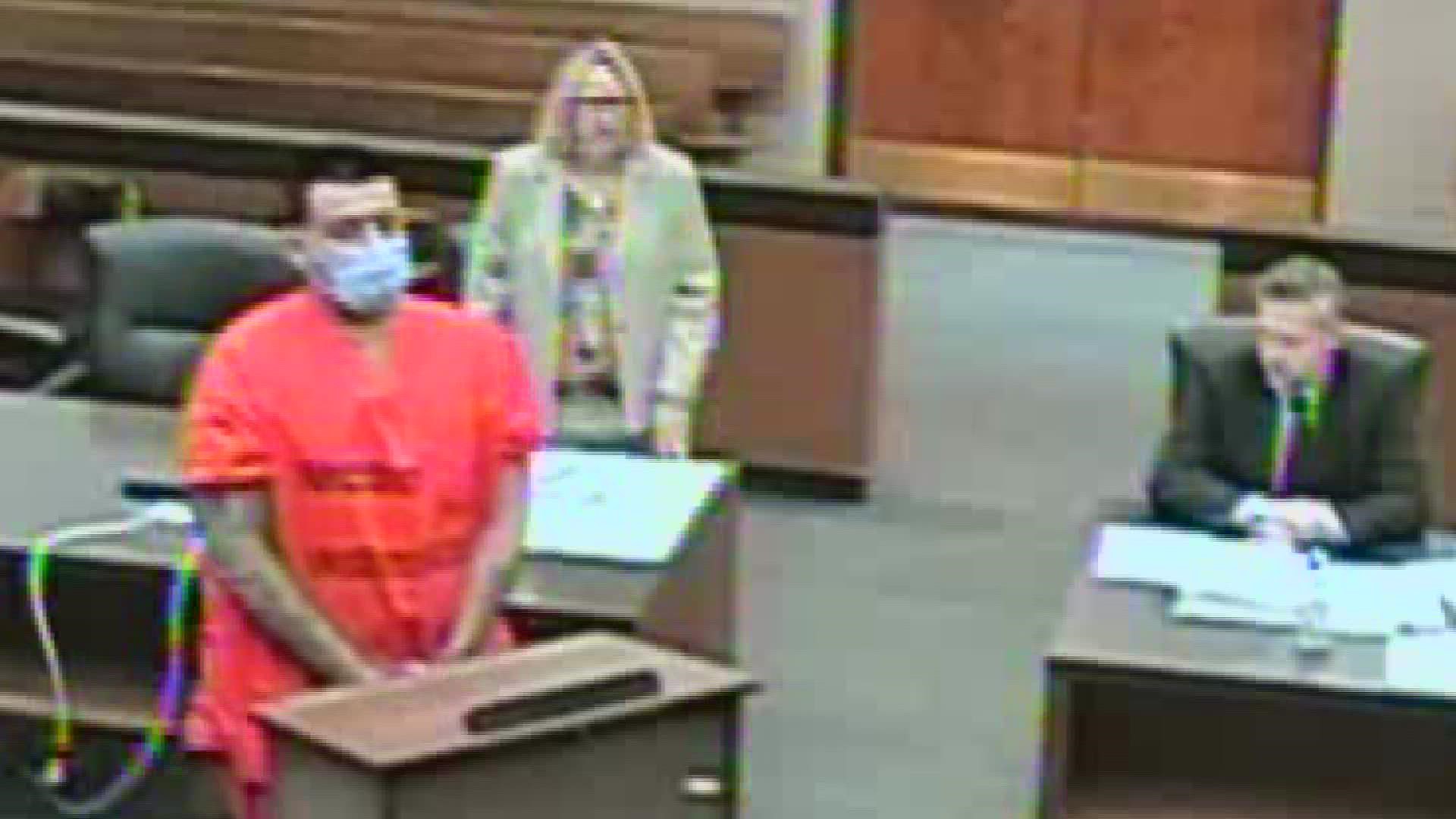PHOENIX — Fentanyl is touching more and more Arizonans' lives, as five people die every day from opioid overdoses in Arizona. According to the state health department, fentanyl is the most common drug involved in overdoses.
"It's devastating," Kim Humphrey, CEO of Parents of Addicted Loved Ones said.
The support and education group has seen the shift from methamphetamine and heroin to fentanyl.
"We see at least two-thirds, probably, of the people that are coming to the meeting and their loved one has had some issue with fentanyl," Humphrey said.
The fentanyl crisis though is both a public health issue and a criminal justice one.
Drug cases and the court system
In Erik Ignacio Hernandez's latest case, he pleaded guilty to burglary, related to stealing catalytic converters to fuel his drug addiction.
"The behavior he's choosing to support his addiction is escalating," the Maricopa County Attorney's Office prosecutor said at Hernandez's sentencing earlier this year.
Looking back through court records, Hernandez's history mostly involves drugs.
"He's had a lot of contact with the system, he's had chances for treatment, he's had chances for probation, at getting his life together," the prosecutor said.
Now, Hernandez is serving another prison sentence, this time for seven years.
It's a sentence even his defense attorney agreed with in court.
"It’s appropriate in this instance because he’s had those chances," Hernandez said.
More cases involving fentanyl
The Maricopa County Attorney's Office said they're seeing more cases involving the synthetic opioid.
"What we're seeing not only seeing more cases, but we're seeing larger numbers of those pills," Maricopa County Attorney Rachel Mitchell said.
On Friday, the Phoenix Police Department said they seized the largest amount of pills in department history.
Across the state, law enforcement agencies have found the pills increasingly disguised as other things from other drugs to candy. The drug can take someone's life with just one pill.
Mitchell's view
Mitchell, who's running against Democratic candidate Julie Gunnigle to finish out the late Allister Adel's term says both crimes and addiction need to be addressed.
For Mitchell, it's a three-category issue: people who are addicted, those addicted and selling drugs and drug traffickers.
"We have people who are simply earning money off of transporting and selling fentanyl to very vulnerable people. And that's a completely different category. And that needs to be treated much more severely than the first two," Mitchell said.
Mitchell points to cases like Hernandez's, that other crimes are committed to help fund someone's drug addiction.
"So to think that this is like a victimless crime, that really is just affecting the person who's addicted, is completely wrong. It is affecting all of our community through a lot of property crime, and it's serious and it needs to be addressed," Mitchell said.
The Maricopa County Attorney's Office adds a new felony diversion pilot program funded through marijuana tax revenue will address opioid use disorder as part of their Family Violence Bureau.
A spokesperson said that after one year, the office is hoping to expand it to all defendants.
Gunnigle's view
Gunnigle believes safer communities would come from treating the root cause.
"Addiction is a resource issue, and if they had the resources to get into treatment, that their whole community would be safer. And that's what we mean when we talk about treating issues at the root cause," Gunnigle said.
The focus for Gunnigle, should she win the election in November, would be on diversion, treatment and education.
"I suppose the biggest question is, how much incarceration does it take to make somebody not addicted?" Gunnigle said.
According to August data from the Arizona Department of Corrections Rehabilitation and Reentry, nearly 82 percent of inmates have "significant substance abuse histories."
Currently, only 509 inmates are in an addiction treatment program out of more than 33,000 inmates.
Gunnigle believes it's less about the supply of the drug, as it is about those who are addicted to it.
"When you start getting at the demand through treatment programs, through diversion through deflection programs, and through real education efforts, that's when you're going to see progress," Gunnigle said.
Maricopa County parents forum
For families like Humphrey's, fentanyl is a people issue.
"There's consequences for committing crimes, there's consequences for bad actions. But there's also hopefully, a part of you that understands that this individual needs some help this individual needs treatment, Humphrey said.
Humphrey added that the doesn't know a parent that doesn't talk to their kids about not taking drugs. His advice to parents is to help kids understand that there can be serious, even life-threatening consequences to decisions they make, especially with fentanyl.
With the growing issue of fentanyl, the Maricopa County Attorney's Office is hosting a panel discussion on fentanyl.
It's being held on Tuesday, September 27, from 6 p.m. to 7 p.m. at Independence High School's Band Auditorium. Address: 6602 N. 75th Avenue Glendale, AZ 85303.
Up to Speed
Catch up on the latest news and stories on the 12News YouTube channel. Subscribe today.


